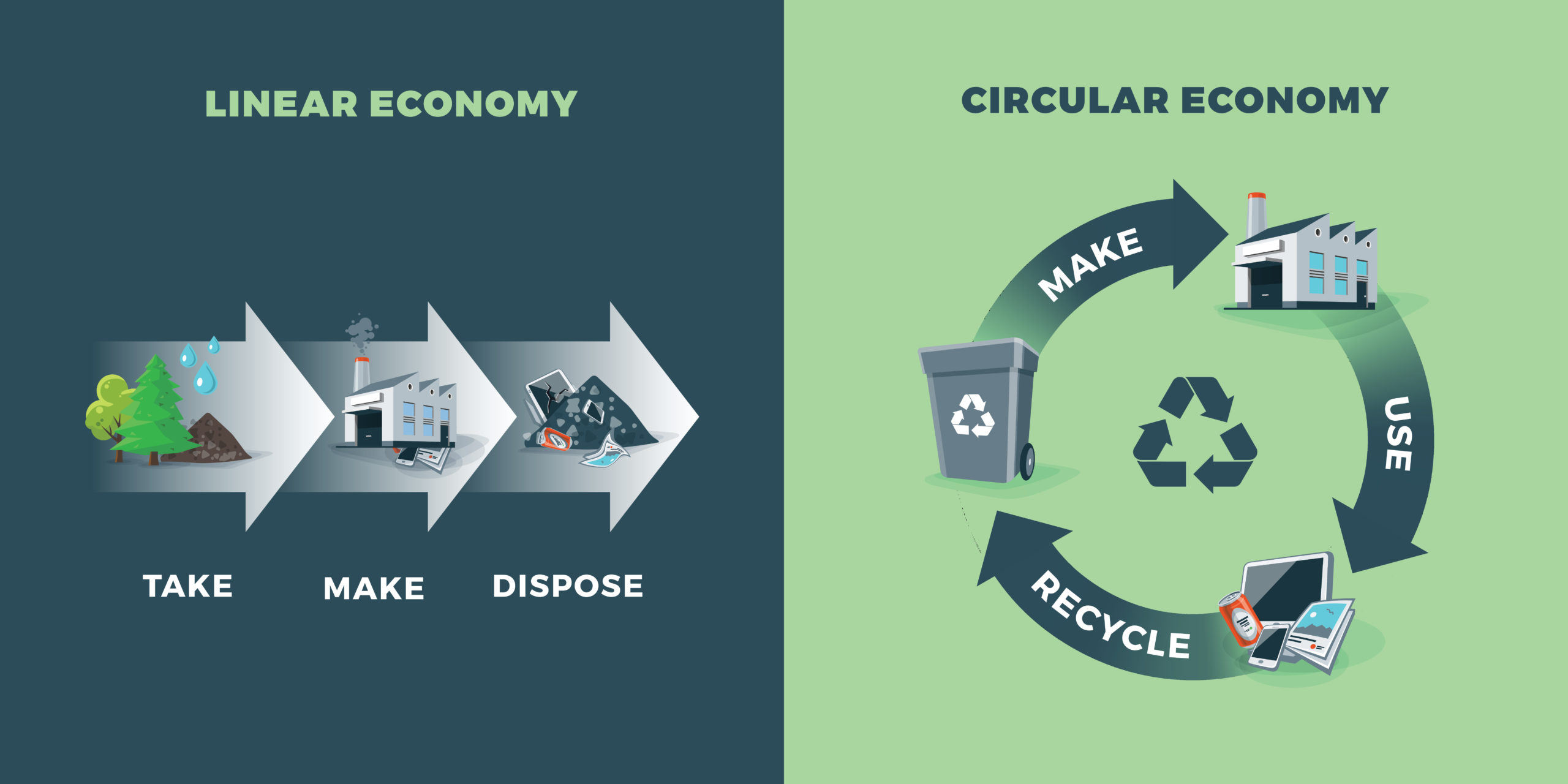
The government has issued a draft national strategy on how Ireland can transition to a Circular Economy and is currently inviting businesses, communities and citizens to contribute their views through a public consultation.
What is a circular economy?
Looking beyond the current take-make-waste extractive industrial model, a circular economy aims to redefine growth, focusing on positive society-wide benefits. It entails gradually decoupling economic activity from the consumption of finite resources, and designing waste out of the system. Underpinned by a transition to renewable energy sources, the circular model builds economic, natural, and social capital. It is based on three principles:
www.ellenmacarthurfoundation.org
Minister for the Environment, Climate and Communications, Eamon Ryan TD said:
"The Circular Economy is built around 'doing more with less' or consuming fewer material resources to sustain our communities, homes and economy. The model builds on sharing, reusing and reinventing materials to meet our needs and replaces the current 'take, make, dispose' model. We are now developing a whole-of-Government strategy to ensure Ireland transitions to a Circular Economy and avails of the opportunities the circular economy can provide. These opportunities include reducing waste, shrinking our carbon footprint, supporting local and regional economic development, growing new business models and providing skilled employment opportunities."
The draft Strategy sets out what is a circular economy, why Ireland needs to achieve a circular economy and how national policy will develop to support that goal.
It has 5 key objectives:
The final strategy will provide an important policy signal across the system and the markets that Ireland is committed to a transition to circularity. The government had committed to producing this strategy under the Waste Action Plan for a Circular Economy.
Our transition to a circular economy will require a whole of society effort. To help communities make the transition to a circular economy, the government has launched a new Circular Economy Innovation Grant Scheme (CEIGS). This grant scheme aims to support innovation and circular economy projects by social enterprises, voluntary and community organisations and businesses with less than 50 employees. The total CEIGS is €250,000 for the 2021 call. The maximum year 1 grant available will be €50,000 – the indicative funding range for projects is €10,000 - €50,000.
Applications for funding could focus on the thematic areas which relate to priorities for the circular economy in Ireland: plastics, construction & demolition waste, food waste and resources & raw materials (electrical and electronic equipment, textiles, furniture). Some examples (for illustration purposes) of the type of proposals for funding that could be considered are:
In line with the measures proposed in the Waste Action Plan, today also sees the launch of a consultation on Ireland’s new Circular Economy Programme , led by the Environmental Protection Agency (EPA). This new programme builds on fifteen years of leadership by the EPA on waste prevention, including Ireland’s well-regarded food waste prevention campaign and the development of national guidance on priority topics such as Construction Waste Management and Green Public Procurement. Through its work in this area the EPA also supports Dublin’s Rediscovery Centre as the National Centre for the Circular Economy; and Circuleire - the National Circular Manufacturing Platform.
The new EPA Circular Economy Programme will be a driving force for Ireland’s move to a circular economy by businesses, householders and the public sector. It is founded on the waste hierarchy which identifies Prevention as the priority, to be followed by: Re-Use; Repair; and Recycling. Activities within the programme will be focussed on the sectors that use the most resources and where the potential for circularity is high. Through the programme EPA will provide insights and data to support national circular economy policy and behavioural change campaigns. Early examples of this approach will be the development of target-driven roadmaps on Food Waste and Plastics to articulate sectoral actions required to achieve a national shift to circularity. The successful model of partnership working will also be continued and developed, with a new collaboration to grow Ireland’s reuse & repair culture.
The programme objectives are to:
The public consultation on the Programme is open until 17:30, 11 June 2021.
Speaking at the launch of the programme today, Laura Burke, Director of the EPA said:
"The EPA Circular Economy Programme supports government strategy and will translate national circular ambitions into the daily activities of workplaces and homes across Ireland. Creating a resource efficient economy and resilient society requires rapid and far-reaching transformation across all sectors. This new programme will work with business leaders, public-sector exemplars and the public to change our attitudes to consumption and to develop new opportunities that meet consumer needs while reducing waste and carbon emissions. We look forward to hearing from our stakeholders with their views on the programme’s objectives and priorities."